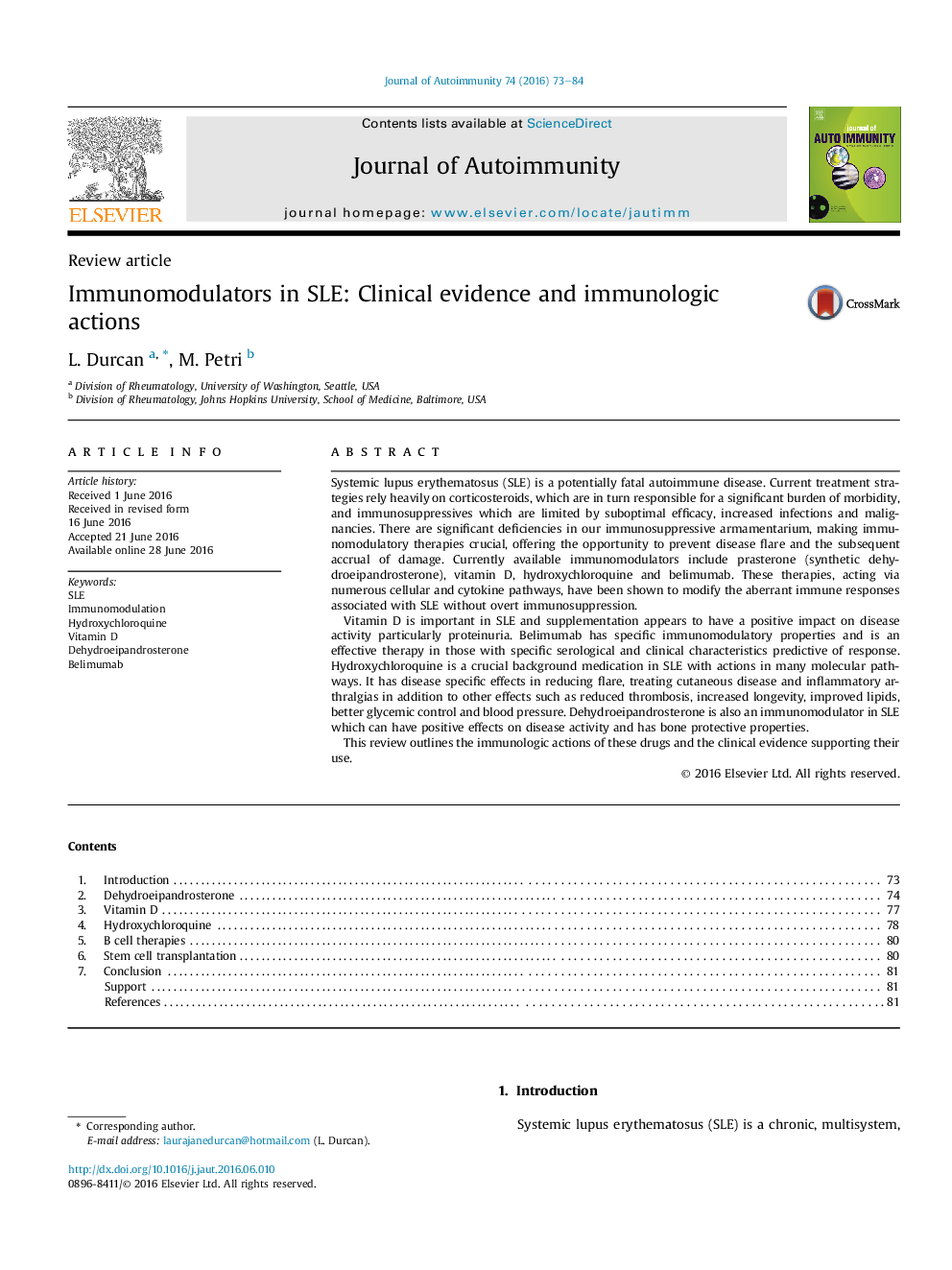| Article ID | Journal | Published Year | Pages | File Type |
|---|---|---|---|---|
| 5667898 | Journal of Autoimmunity | 2016 | 12 Pages |
â¢Immunomodulatory therapies in systemic lupus erythematosus (SLE) offer the opportunity to modify aberrant immune responses without immunosuppression.â¢Currently available immunomodulators include vitamin D, hydroxychloroquine, prasterone (synthetic dehydroeipandrosterone) and belimumab.â¢Low levels of dehydroeipandrosterone associate with disease activity in SLE.â¢Vitamin D supplementation results in a small improvement in overall disease activity and a more profound impact on renal parameters, in particular proteinuria.â¢Hydroxychloroquine is an essential immunomodulator in the medical management of SLE.
Systemic lupus erythematosus (SLE) is a potentially fatal autoimmune disease. Current treatment strategies rely heavily on corticosteroids, which are in turn responsible for a significant burden of morbidity, and immunosuppressives which are limited by suboptimal efficacy, increased infections and malignancies. There are significant deficiencies in our immunosuppressive armamentarium, making immunomodulatory therapies crucial, offering the opportunity to prevent disease flare and the subsequent accrual of damage. Currently available immunomodulators include prasterone (synthetic dehydroeipandrosterone), vitamin D, hydroxychloroquine and belimumab. These therapies, acting via numerous cellular and cytokine pathways, have been shown to modify the aberrant immune responses associated with SLE without overt immunosuppression.Vitamin D is important in SLE and supplementation appears to have a positive impact on disease activity particularly proteinuria. Belimumab has specific immunomodulatory properties and is an effective therapy in those with specific serological and clinical characteristics predictive of response. Hydroxychloroquine is a crucial background medication in SLE with actions in many molecular pathways. It has disease specific effects in reducing flare, treating cutaneous disease and inflammatory arthralgias in addition to other effects such as reduced thrombosis, increased longevity, improved lipids, better glycemic control and blood pressure. Dehydroeipandrosterone is also an immunomodulator in SLE which can have positive effects on disease activity and has bone protective properties.This review outlines the immunologic actions of these drugs and the clinical evidence supporting their use.
